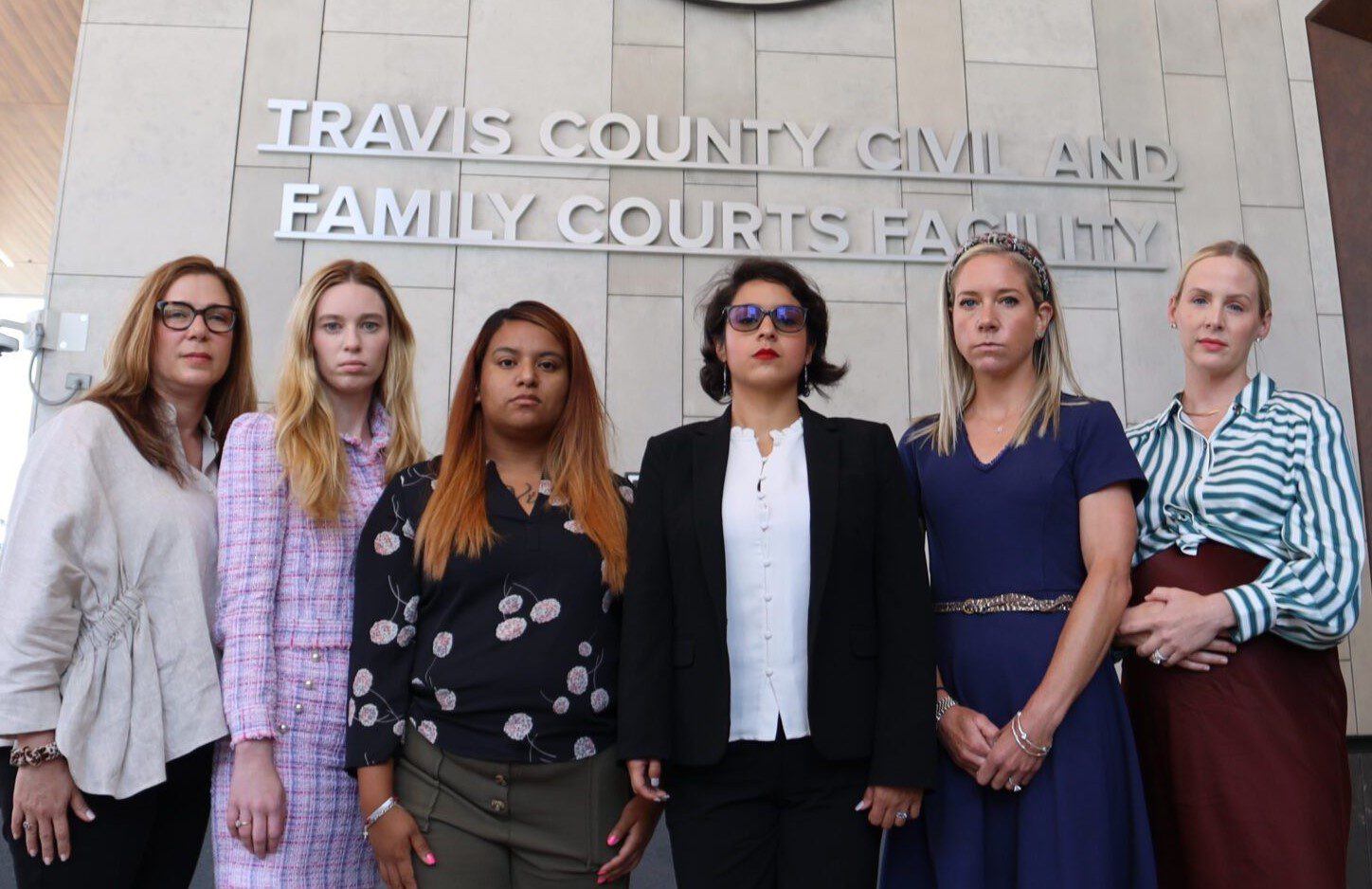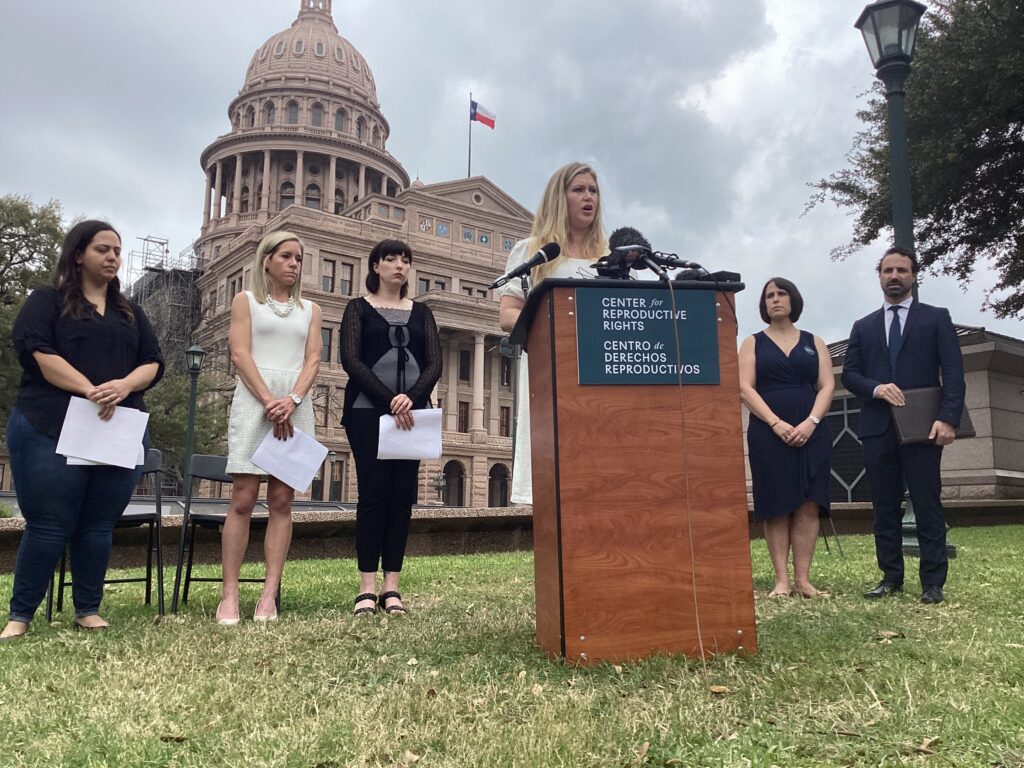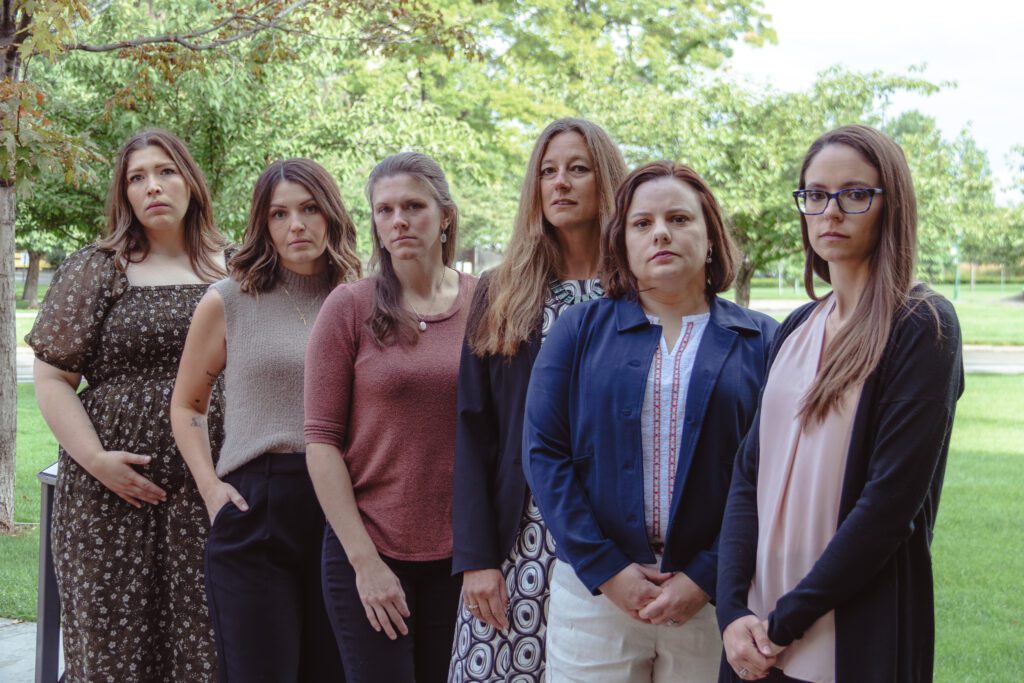More Women Denied Abortion Care Join Center’s Case Against Tennessee
Number of pregnant people harmed by U.S. state abortion bans continues to grow.

As the number of pregnant people harmed by state abortion bans continues to grow, four more women have joined the Center for Reproductive Rights lawsuit against Tennessee after being denied medically necessary abortion care for their severe and dangerous pregnancy complications. With today’s filing, there are now nine plaintiffs in the case, Blackmon v. State of Tennessee.
The plaintiffs added today faced pregnancy complications including devastating fetal diagnoses and life-threatening sepsis infections. Because of Tennessee’s total abortion ban, they were forced to travel hundreds of miles out of state to receive the care they needed, rather than wait until they were near death to receive abortion care in their home state.
Also today, the Center asked the court for a temporary injunction, which would immediately block Tennessee’s abortion ban as it applies to dangerous pregnancy complications while the case proceeds.
Read more.
Blackmon v. State of Tennessee
Case background, timeline, legal documents and more.
Stories of Women Denied Abortion Care Capturing National Attention
To restore abortion access in states banning abortion, the Center has filed several lawsuits and complaints on behalf of dozens of women who were denied abortion care despite risks to their health, lives and future fertility. The Center is also representing physicians unable to provide the medically necessary abortion care their patients need because of the harsh criminal, financial and professional penalties they face.
Stories of women—such as Kate Cox, who with a fatal fetal diagnosis and a high-risk pregnancy, requested and was denied an abortion in Texas; Amanda Zurawski, who nearly died from a sepsis infection after her water broke at 18 weeks and she was denied abortion care; Samantha Casiano, who was unable to travel out of state and was forced to carry a nonviable pregnancy to term and give birth to a baby who died just four hours after birth; and so many others—have captured national attention, shining a spotlight on the real harms of abortion bans and encouraging other women denied abortion care to join the Center’s cases.
In filing these legal actions, the Center is seeking to clarify the medical exceptions to the states’ extreme abortion bans so pregnant patients in dire situations can receive the care they need and doctors can use their best medical judgment to treat their patients without fear of reprisal.
New Plaintiffs Speak Out
“I am joining this lawsuit today because Tennessee’s abortion ban caused tremendous suffering for me and my family. My grandmother died in childbirth, leaving behind seven children, so when my doctors explained that my fetus wouldn’t survive and that my own health was at serious risk, all I could think about was my three-year-old son who needs his mom to be alive to take care of him.”
–Rachel Fulton
“I was inspired to join this lawsuit after hearing other women in the case speak out against the abortion ban that caused my family such grief and trauma. I was forced to flee my home and travel to Florida to receive basic health care that used to be available in my own community. No family should ever be forced to endure the ordeal that Tennessee’s laws forced on mine.”
–Monica Kelly
Tennessee Case Seeks to Clarify Medical Exceptions to State’s Abortion Ban
Blackmon v. State of Tennessee was originally filed by the Center in September 2023 to clarify the scope of the medical necessity exception to Tennessee’s criminal abortion ban. The case was filed on behalf of three Tennessee women who, like the plaintiffs joining the case today, were denied abortion care despite dangerous pregnancy complications, and two Tennessee physicians who have been prevented from offering their patients the medically indicated treatment during obstetrical emergencies.
Doctors in Tennessee face loss of licensure, fines, and up to 15 years in prison for violating the ban, yet its vague language and non-medical terminology have left doctors uncertain about when they are legally able to provide abortion care without being prosecuted.
In November 2023, the State of Tennessee filed a motion to dismiss the case by claiming that pregnant people do not deserve the same protection for their lives as non-pregnant people.
Plaintiffs’ Stories Underscore Danger of Extreme Abortion Bans
As with other plaintiffs in the case, the experiences of the four women joining the case today provide real-life examples of how people with obstetrical emergencies are not receiving medically necessary care.
The new plaintiffs are:
- Monica Kelly, of northern Tennessee, who was 12 weeks pregnant with her second child when her doctor told her that her pregnancy had Trisomy 13, a severe fetal condition, and was unlikely to survive to birth or would die shortly after birth. Monica’s doctor warned her that continuing the pregnancy would put her at risk for preeclampsia and infection, among other conditions. Monica traveled to Florida to receive the abortion care she needed, in part through the help of family and a trusted OB-GYN in the state.
- Kathryn Archer, of Nashville, who was 20 weeks pregnant with her second daughter when she learned that several severe fetal conditions, including irregular brain development and improperly developed organs, made it unlikely that her pregnancy would survive to birth. After struggling to find an appointment out of state, Kathryn was able to obtain abortion care in Washington, D.C. She was only able to afford the significant travel expenses with assistance from an abortion fund, friends and family, and a supportive church.
- Rebecca Milner, of eastern Tennessee, who was 20 weeks pregnant with her first child when she learned she had suffered pre-term premature rupture of membranes (PPROM) and her baby was unlikely to survive. Continuing the pregnancy also put Rebecca at risk of potentially life-threatening infection. She was able to travel with her husband to Virginia to obtain the abortion she needed. However, Rebecca still developed an infection that doctors said resulted from the delay in abortion care and needed emergency treatment for sepsis when she returned to Tennessee.
- Rachel Fulton, of Knoxville, who was pregnant with her second son when an ultrasound showed inadequate fetal development of the nervous system, lower spine, lungs, abdomen, feet and hands, as well as fluid buildup in tissues and organs. The pregnancy was unlikely to survive to birth or long past birth, and continuing the pregnancy put Rachel at risk of developing mirror syndrome, a life-threatening complication. Rachel’s grandmother had died in childbirth, a tragedy that had a lifelong effect on Rachel’s father and his siblings. To safeguard her health and spare her family from such tragedy, she drove with her husband to Illinois to obtain abortion care.
The Center’s Medical Exceptions Cases
Read more on the Center’s cases on behalf of pregnant women denied abortion care despite risks to their health, life and future fertility.
“After we filed this case in September, our phones lit up with calls from people who were forced to endure similar horror stories,” said Linda Goldstein, Senior Counsel at the Center. “These women were put through unnecessary agony and suffering, and some almost died.”
“The medical exceptions to state abortion bans clearly do not work—and that is true not just in Tennessee but in every other state that bans abortion,” added Goldstein. “This is a full blown public health crisis, and the Center, by bringing cases across the country, is dedicated to restoring essential healthcare for pregnant patients.”
Read more:
“Why more women are joining a lawsuit challenging Tennessee’s abortion ban,” The Tennessean, 01.08.24
Denied abortion care?
The Center for Reproductive Rights is dedicated to helping all people access abortion in their communities, including people who are denied care while facing pregnancy complications. If you have been denied care and want to speak to a lawyer about your options, please reach out to [email protected].



